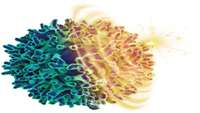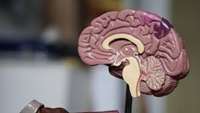Adipose-derived stem cells used to treat lymphedema in successful Phase I trial
In a new Phase I clinical trial, scientists from Odense University Hospital (Denmark) have shown that adipose-derived stem cells could be used to treat lymphedema – a chronic condition that typically causes swelling in the arms or legs.
Yale Scientists Unlock “Sugar Code” to Regulate in vivo and ex-vivo Blood Stem Cell Production
Yale scientists have identified a crucial biological link in the process that transforms certain complex sugars into hematopoietic stem and progenitor cells.
Feeding off fusion or the immortalization of tumor cells
Worldwide, cancer is the second leading cause of death—in 2018 alone, it claimed approximately 9.6 million lives, or one in six deaths. The development of cancer is incredibly complex and is controlled by an interplay of various factors—only recently, it became clear that the majority of human cancers such as cervical, gastrointestinal and breast among others, originate from adult stem cells becoming deregulated.
Further evidence shows clinical viability of natural tooth repair method
Over the last five years scientists at King's College London have been investigating a method of stimulating natural tooth repair by activating cells in the tooth to make new dentine.
Gut Immune Cells May Help Send Multiple Sclerosis Into Remission
An international research team led by UC San Francisco scientists has shown, for the first time, that gut immune cells travel to the brain during multiple sclerosis (MS) flare-ups in patients. These gut cells seem to be playing a protective role, helping drive MS symptoms back into remission.
First non-human primate study showing promise of gene therapy for stroke repair
Stroke is a leading cause of death and severe long-term disability with limited treatments available. A research team led by Prof. Gong Chen at Jinan University, Guangzhou, China recently reported the first non-human primate study demonstrating successful in vivo neural regeneration from brain internal glial cells for stroke repair.
‘Mini-lungs’ reveal early stages of SARS-CoV-2 infection
To date, there have been more than 40 million cases of COVID-19 and almost 1.13 million deaths worldwide. The main target tissues of SARS-CoV-2, the virus that causes COVID-19, especially in patients that develop pneumonia, appear to be alveoli – tiny air sacs in the lungs that take up the oxygen we breathe and exchange it with carbon dioxide to exhale.












